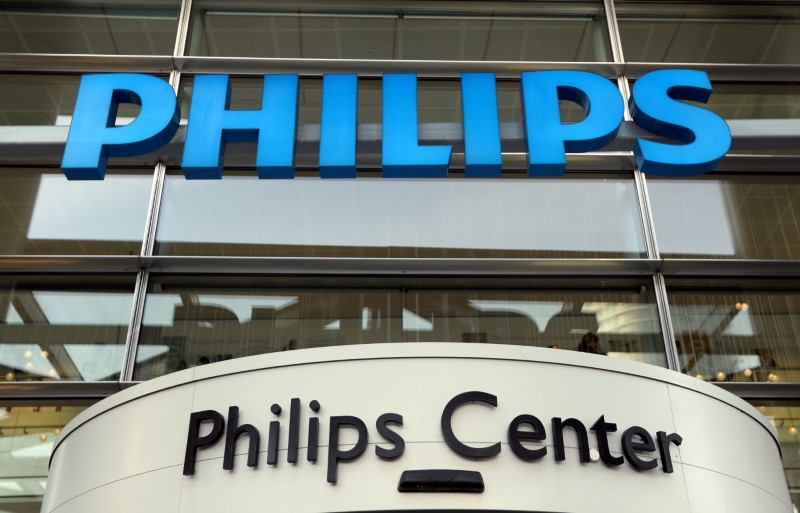By Bart H. Meijer
AMSTERDAM (Reuters) - Broad powers over U.S. factories brought in by President Donald Trump could fuel protectionism and jeopardize the supply of critical medical equipment to fight the coronavirus pandemic, Dutch health technology company Philips warned on Tuesday.
Trump said on Friday he had put into action the U.S. Defense Production Act, a law dating back to the Korean War of the 1950s that grants him sweeping authority to expedite and expand the supply of resources from U.S. factories.
That could include hospital ventilators which Philips makes in factories in California and Pennsylvania.
"We are worried", Philips (AS:PHG) spokesman Steve Klink told Reuters on Tuesday, referring to the act.
Amsterdam-based Philips said on Sunday it would increase production of critical medical supplies for the diagnosis and care of patients with the new coronavirus disease COVID-19.
Most importantly, it said it would double its production of hospital ventilators in the coming weeks to help meet soaring global demand, and was aiming at a four-fold increase by the third quarter.
All these ventilators, however, are produced in its two U.S. factories, which makes Philips' promise to ship them to the regions where they are most needed vulnerable to interventions by the U.S. government.
Such interventions could not only limit supply outside the United States, Klink said, but could also leave the country itself with less equipment than it would otherwise have - if retaliation in Europe or Asia squeezed the supply of critical parts.
"We know we can meet our production promises", Klink said.
"But only if the entire supply chain cooperates. A respiratory device has many parts, which come from all over the world. Protectionism can have a detrimental effect, no matter if it happens at the end of the production line or somewhere in between."
In a tweet posted on Tuesday, Trump said the Defense Production Act was in full force, but had not been used yet.
A few hours later, CNN reported the Trump administration was planning to procure 60,000 coronavirus test kits through the first use of the act.
The Dutch ministry of foreign affairs said it was in talks with both Philips and the Trump administration on the matter, but declined further comment.
Philips said it was optimistic its exports of ventilators would be unaffected, as Chief Executive Frans van Houten continued to be in talks with the U.S. government.

"As long as we are in talks, we remain confident in a positive outcome."